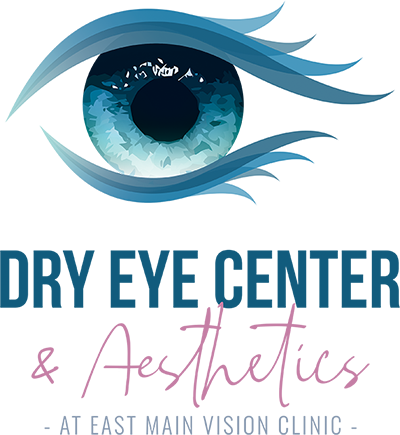October 25, 2023

Dry eye is a condition that affects millions of people worldwide. It's a disorder characterized by the eyes not producing enough tears, or the tears evaporating too quickly. This can lead to discomfort, blurred vision, and in severe cases, damage to the front surface of the eye.
It's not just the physical discomfort that's a concern. Dry eye can have a significant impact on our daily lives, affecting our performance at work, our leisure activities, and even our sleep. One of the most profound impacts of dry eye is on our quality of sleep, a crucial aspect of health and wellbeing.
How Dry Eye Can Affect the Quality of Sleep
Dry eye may seem like a minor inconvenience that only affects your day, but the truth is, it can significantly impact your quality of sleep. Discomfort and irritation caused by dry eye can make it difficult to fall asleep or stay asleep throughout the night.
When you close your eyes to sleep, the tear film spreads across the surface of your eyes to keep them lubricated. If you have dry eye, this tear film may be inadequate or poor quality, leading to dryness and irritation. This can result in a gritty or scratchy sensation, making it uncomfortable to keep your eyes closed and thus, difficult to sleep. This discomfort can stimulate the nervous system, preventing the body from entering a deep sleep or causing awakenings throughout the night.
Additionally, people with dry eye often report waking up during the night due to the discomfort. This interrupted sleep can lead to daytime sleepiness, fatigue, and a decrease in overall sleep quality.
The Impact of Dry Eye on Overall Sleep Patterns
Beyond the immediate discomfort, dry eye can also disrupt overall sleep patterns. Insomnia, characterized by difficulty falling or staying asleep, can be exacerbated by the discomfort of dry eye. The constant sensation of dryness and grittiness can make it difficult to relax and drift off to sleep.
Sleep apnea, a disorder where breathing stops and starts repeatedly during sleep, has also been linked to dry eye. Reduced oxygen levels during an episode of sleep apnea can lead to a decrease in tear production, exacerbating dry eye symptoms.
The circadian rhythm, our body's internal clock that regulates sleep, can affect tear production. Disruptions in this cycle can exacerbate dry eye symptoms and further disrupt sleep.
Tips to Manage Dry Eye and Improve Sleep Quality
While treating dry eye can help improve your sleep, there are also specific strategies you can use to manage dry eye symptoms at night and enhance your sleep quality.
Firstly, maintaining a regular sleep schedule can help regulate your body's circadian rhythm and tear production. Going to bed and waking up at the same time each day can help manage dry eye symptoms and improve your sleep.
Using a humidifier in your bedroom can also help. By increasing the moisture in the air, a humidifier can prevent your tears from evaporating too quickly, reducing dryness and irritation.
Lastly, good sleep hygiene practices can help improve your sleep. This includes avoiding caffeine and electronics before bed, keeping your bedroom cool and dark, and establishing a relaxing bedtime routine.
Conclusion
Dry eye can significantly impact your quality of sleep and overall sleep patterns. Understanding the connection between dry eye and sleep disruptions is crucial in managing this condition effectively.
Regular eye exams play a vital role in early detection and management of dry eye. By discussing your symptoms with your optometrist, including any sleep disruptions, you can ensure that you receive the appropriate treatment and advice.
Managing dry eye is not just about relieving the symptoms during the day. By taking steps to manage dry eye at night and maintain good sleep hygiene, you can improve your sleep quality and overall health and wellbeing.
For more information on how dry eye impacts the quality of sleep and overall sleep patterns, contact East Main Vision Clinic at (253) 780-0700 to discuss your symptoms or schedule an appointment.



